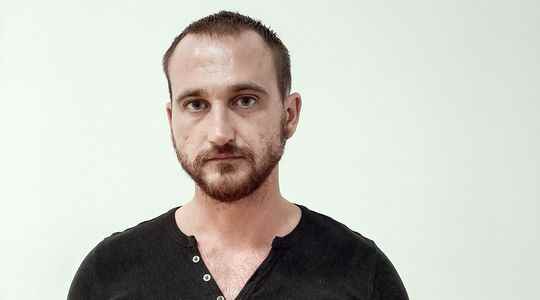Upon landing in France, Pavel Filatiev hastens to go to the toilet. The soldier places his bag on the greyish tiled floor of the sinks at Roissy – Charles de Gaulle airport. “Emotion” commands him to go quickly, but he does not forget to to film oneself. In a video posted on social networks, he grabs his identity papers, tears them up, then throws them away. The flush takes away his Russian nationality and keeps “death” a little further away. Living in Russia is no longer allowed to him since the publication of a 141-page manifesto on the social network Vkontact, where he fights the war in Ukraine, he who nevertheless participated in the invasion of this country to the people so close to his .
At 34, Pavel Filatiev has spent a good part of his life in fatigues. First by proxy: his father was in the 56th Airborne Assault Regiment, based in Crimea. Then as a soldier, sent on February 24, 2022 to take the cities of Kherson and Mikolaiv, in southern Ukraine. From now on, he is asking for political asylum in France, this Western country, a member of NATO, an omnipresent enemy in Russian minds. His arrival in Paris, Sunday August 28, was a “relief”, he assures. While waiting for a response from the French government, Pavel Filatiev is leading a final campaign.
TV5 Monde, RFI, RTL… This bachelor without children – “I only answer for myself”, he claimed to Release – repeats his story tirelessly to the French media, hoping that it will not happen again. “I want people in Russia and around the world to understand how this war happened, why people are still waging it…I want as few young Russian men as possible to go there and get involved in this, that they know what is going on there,” he insisted to AFP, in the waiting area for asylum seekers at Roissy. This media tour also gives him the opportunity to justify his status: he is a “whistleblower”, he says, and not a “deserter” as described by some media.
“We had no moral right to attack another country”
Pavel Filatiev believes he did not flee the war. He rather refused to return there, after realizing that NATO and “foreign mercenaries” were not flooding the Ukrainian ranks, who were then only defending themselves. After two months of fighting, he nearly lost an eye. He is hospitalized in Sevastopol, Crimea, he told AFP. He tries to resign for health reasons but his hierarchy refuses. At the beginning of August, it publishes its manifesto online. “We did not have the moral right to attack another country, which is more the people who are closest to us,” he asserts.
In this text – entitled “ZOV”, in reference to the Z, O and V battalions of the Russian army – the man also tells of a Russian army far from the luster of parades in public squares orchestrated by Vladimir Putin. “Corruption, disorder, I don’t care have exceeded the limits of what is acceptable,” he writes. The mission orders are vague, the equipment is sometimes old, defective, food and fuel often missing, he says on the sets. Many soldiers share this observation, according to him.
For his writings, considered “false information” by the regime, Pavel Filatiev risks 15 years in prison. “Those who are against the war are afraid to say it, to leave, are afraid of the consequences”, he regrets, affirming that only a minority of soldiers are convinced of the merits of what they are doing in Ukraine. To avoid “rotting in a Russian prison” or “being killed”, the soldier first tries to hide, from Russian cities to Russian cities.
With the help of the Russian NGO Gulagu.net, he went into exile in Tunisia before landing in Paris. As long as he does not benefit from French protection, Russia could issue an Interpol international arrest warrant or request his extradition. What should he be afraid of for his safety? Face uncovered on the set of TV5 World three days ago, he hunted the idea of a “niet” edge.
